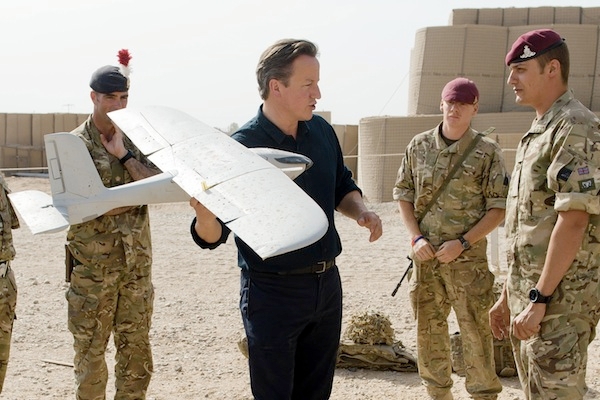Libya is a success from which David Cameron might not recover. This, at any rate, seems to be the fear of Sir David Richards who has marked his exit as head of the military with a Daily Telegraph interview. He appears to reinforcing a point David Cameron once made: ‘I am not,’ he once said, ‘a naive neo-con who thinks you can drop democracy out of an aeroplane at 40,000 feet.’ The Prime Minister was proved right in Libya: the Tomahawk missiles he fired at Libya cruised at just 400 feet before sinking into their targets which (in Gaddafi’s case) was enough to restrain the tyrant and introduce democracy. Bur Sir David is saying this is not an option in Syria: if you want to topple Assad you’d have to send in the Army.
‘If you wanted to have the material impact on the Syrian regime’s calculations that some people seek, a no fly zone per se is insufficient. You have to be able, as we did successfully in Libya, to hit ground targets. You have to establish a ground control zone. You have to take out their air defences. You also have to make sure they can’t manoeuvre – which means you have to take out their tanks, and their armoured personnel carriers and all the other things that are actually doing the damage. If you want to have the material effect that people seek you have to be able to hit ground targets and so you would be going to war if that is what you want to do.’
He seems to be against dabbling in war, and history backs him up. The US never intended to send ground troops to Vietnam: you can be sucked into these situations. I suspect that Sir David, mindful of military cuts, will want to reinforce the point that Britain is being steadily deprived of intervention options as a result of this smaller military. Fine, if that’s the deliberate choice the government makes. Except that I doubt Cameron sees this as a choice: he acted in Libya against the advice of Sir David. So this may leave him with the idea that the military moans, but can actually do it in the end.
Cameron has admirable instincts about wanting Britain to shape the world rather than be shaped by it, but there is a mismatch between his strategic ambitions and his spending priorities. As I argued in the Telegraph earlier this year, when first elected, Cameron increased the foreign aid budget by as much as he cut the military by: such a transfer of resources looked odd then, and odder still now. It won’t be long until the next defence spending review is drawn up, so there is ample opportunity to correct this anomaly. If Cameron wants a military capable of toppling Assad, I’m all for it. But he’ll have to pay for it.







Comments